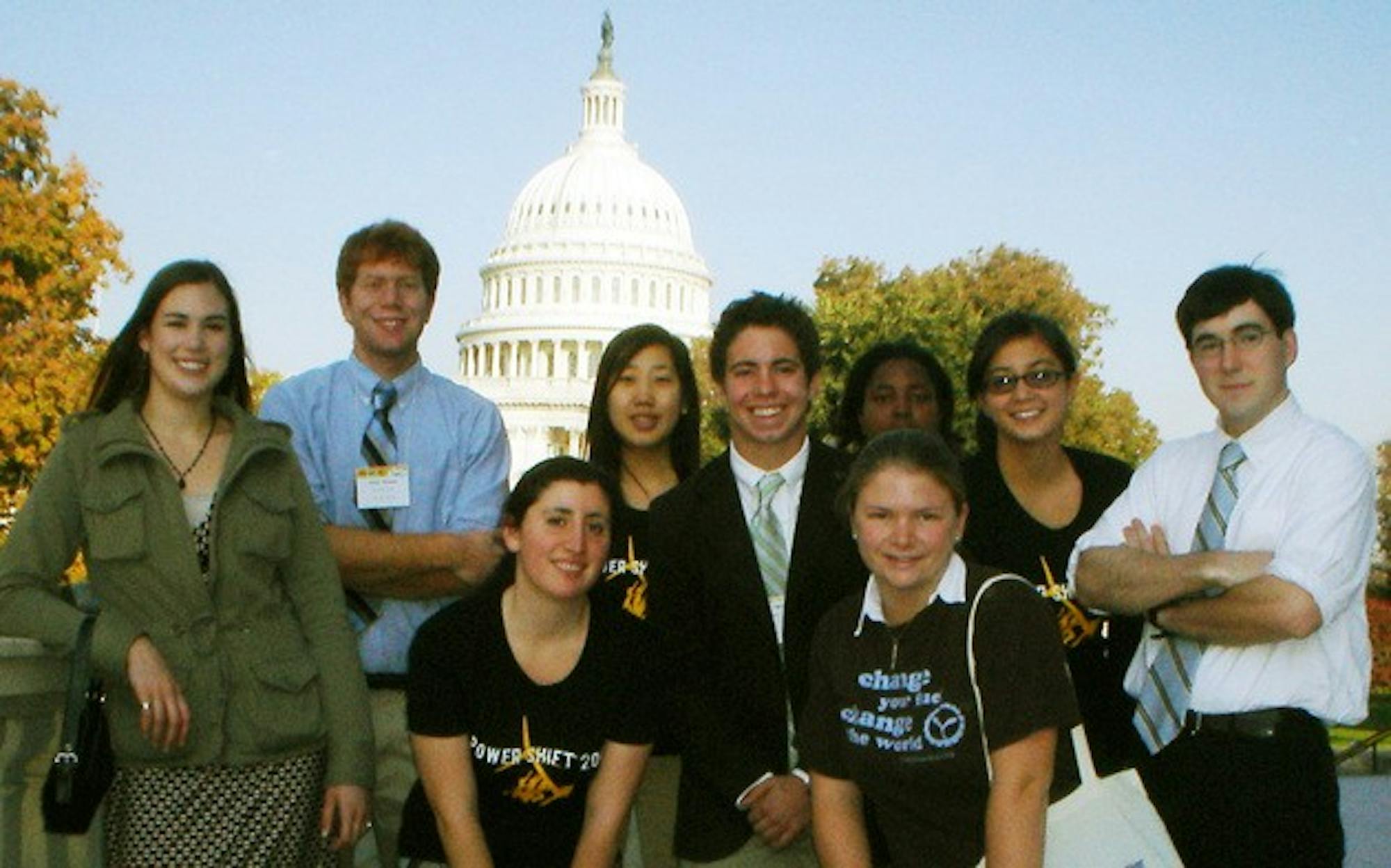Twenty Dartmouth students participated in Power Shift, held this weekend and billed as the largest lobby to cut carbon emissions in history. This weekend more than 6,000 students from across all 50 states arrived at the University of Maryland to take part in a five-day event in order to promote climate change awareness and the promotion of legislation to prevent climate change.
"The goal was to have 2,500 students and we got 6,000," Ruth Hupart '08, co-chair of Sustainable Dartmouth, said.
"It was so inspiring to see 6,000 students from all 50 states gathered to work and laugh together and ultimately create the largest lobbying movement ever for action on climate change" Nick Devonshire '11, who attended the conference, said. In terms of numbers of student representatives, Hupart said that Middlebury was a leader but that Harvard sent only three. Dartmouth was among the more represented schools in the Ivy League.
Hupart and Thomas Glazer '08 led the Dartmouth movement to participate in the event in order to encourage environmental networking and motivate Dartmouth students to innovate new ways in which the Dartmouth campus can better help the environment.
"For all that we are already doing at Dartmouth we can do so much more," she said.
Hupart was first interested in Power Shift through the coalition's similarities to a previous lobby she had attended on climate change at Middlebury College. She said she felt this conference was the expression of a climate change movement that is gathering momentum.
"It's good to meet other leaders in the movement," she said.
Hupart encouraged other Dartmouth students to participate in the lobby, many of who were enthusiastic first-year students.
Many students turned out at the conference to meet others interested in environmental activism, whereas some others who had previously not been involved in the movement came to learn about the issues and the agendas being pushed by the environmental activism community.
In the five days at the meeting, students participated in a multitude of diverse workshops varying from the technology used in combating climate change to the techniques of vegan baking. Much of the last two days were spent in Washington meeting with local representatives -- including many who have Dartmouth students on their staffs -- and lobbying for the environmental cause.
Some of the most largest events were the speeches given by House Speaker Nancy Pelosi, D-Calif., and a group of Native Americans, who spoke on the effects of climate change on indigenous and marginalized groups. Pelosi said a few of her goals included an 80 percent reduction in carbon emissions by 2050 and the implementation of the Green Jobs Act, in which new jobs and training would be provided by the government in order to combat climate change and in turn combat unemployment in struggling areas.
The event seemed to resonate deeply with the Dartmouth students in attendance.
"With the Capitol to my back, staring past thousands of student activists down to the Washington Monument, I realized we were rallying at the same spot Martin Luther King had delivered his famous, 'I have a dream speech' so many years before," Devonshire said in an e-mail. "It was at that moment that I realized the full extent of what we were doing."
Unlike the polarizing activism of the 1960s and 1970s, with sit-ins and the burning of bras, Hupart said that students in the environmental movement today are working through the system and claimed that, although that process may be less exciting, they hope that it should prove more effective.




